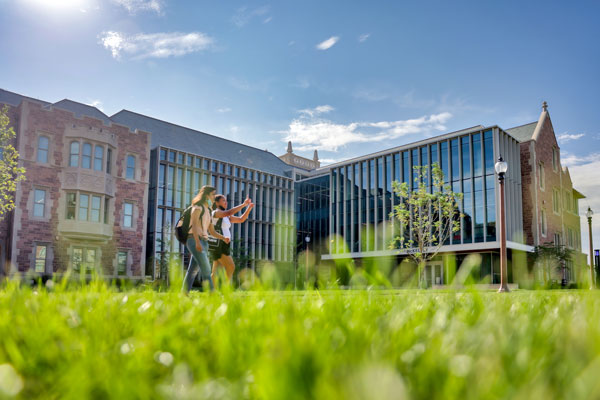New program offers PhD students more essential skill development opportunities
The PhD Student Professional Development Program offers doctoral students a way to round out their graduate education through seminars and intensive training that extend learning beyond the lab and classroom

The Division of Engineering Education in the McKelvey School of Engineering recently launched a PhD Student Professional Development Program, which aims to provide opportunities for doctoral students to refine their skills in areas such as budgeting, instructional design, entrepreneurship and project management.
“Research is done by people, and there are people skills involved in research,” said Tucker Krone, lecturer in the Division of Engineering Education. “You can do the most cutting-edge research — you could cure cancer — but if you can't communicate these things or if you make avoidable mistakes, your cure for cancer never helps anyone.”
Krone worked with Natalie Goodwin-Frank, director of Research Development & Administration in McKelvey Engineering, and others to design the program. Motivated by her work enforcing compliance with ethical research standards, Goodwin helped to develop the tracks and initial training orientation.
“Two of our biggest funders require ethical training for anyone they fund,” Goodwin-Frank said. “In the past, we relied on the vice chancellor of research to handle it, but we started taking it on ourselves to offer this.”
Beyond research, students will receive training in core competencies, which includes leadership, diversity and communication training; teaching and career exploration. All of this is in line with the school’s strategic plan to provide more comprehensive training and support for doctoral students.
“These are the extras that serve to complement students' intensive research training,” Goodwin-Frank said. “We recognize not everyone is going into academia, and we want to be able to offer training in those areas.”
There were also requests by alumni and students for these training opportunities.
“It’s a discussion point and a hot academic topic,” said Cathy Freesmeier, associate dean of graduate student services. “We’ve recently started the graduate student ambassador program, and one of the benefits they requested was more professional development opportunities.”
Through the program, students are required to complete 13 hours of training as part of their degree. The first five hours will be completed during an orientation workshop in their first year, with the remaining eight hours made up of the students' choice of seminars. Graduate Student Services will oversee the program and ensure that students meet the requirements for the milestone.
“This program lets us roll out the content in a more thoughtful and planned way,” Krone said. “We're developing a long-term plan of how we want to build up content and when to have certain conversations with students.”
At the end of the day, the team hopes that students — current and prospective — see the program as another example of the quality of resources and support the school offers doctoral candidates.
“We’re looking at a student as a whole person and giving them the tools they need to not only be an engineer, but a successful engineer,” Goodwin-Frank said.
Back to News
